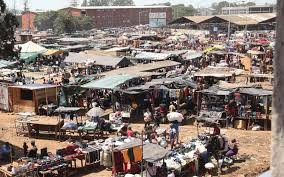GOVERNMENT heads for a showdown with informal traders and vendors over its decision to ban night vending and second-hand clothes trade According to the Zimbabwe Statistics Agency, at least 76,1% of all operational establishments in Zimbabwe are informal However, Local Government and Public Works minister Daniel Garwe announced on Monday that the government has banned the importation of second-hand clothes and night vending in Harare’s central business district with immediate effect He said the vendors and informal traders had a month to clear their stocks before the ban becomes effective
Vendors Initiative for Social and Economic Transformation executive director Samuel Wadzai told NewsDay that informal traders were against the decision “As an organisation dedicated to the protection and empowerment of informal traders, we firmly believe this ban undermines the livelihoods of countless Zimbabweans, exacerbates economic hardship and fails to address the root cause of the challenges the government seeks to mitigate,” Wadzai said “The informal sector, which includes thousands of vendors who rely on selling second-hand clothing and engaging in night vending, play a crucial role in our economy “This sector provides jobs and incomes for many individuals and families, especially in these times of high unemployment and economic instability.”
He said government was jeopardising the livelihoods of thousands of people who depended on vending to support their families
“Rather than eliminating these trading options, there needs to be a focus on regulating and supporting vendors through proper resource allocation, training and market access,” Wadzai said He said vendors operated at night due to absence of gainful employment during the day “The argument presented by government officials suggests that night vending contributes to illicit activities; however, this perspective overlooks the critical social and economic needs of our communities “The socio-economic context in which these individuals operate must be understood and addressed rather than criminalised,” he said
Wadzai called on government to dialogue with informal traders and stakeholders to develop strategies that protect their rights and livelihoods “Prohibitive measures do not create solutions; rather, an inclusive approach encouraging collaboration can lead to sustainable policies that consider the realities of vending and informal trade,” he said Zimbabwe Chamber of Informal Economy Associations secretary-general Wisborn Malaya described the ban as unfortunate and sudden “We are failing to understand the meaning of the ban, because in the current context, from our understanding at a policy level, where the City of Harare has been trying to come up with a proposal to legalise night vending and start to collect revenue out of it as a source of business, which is happening,” he said
“So now, if the Minister of Local Government comes in and government bans night vending, I think they have just done this without consultation or analysis on the impact on relevant stakeholders “The majority of the people who are trading at night are women And on top of that, there are young people, the youths, the young men and the young women.”
“And that has kept them busy so that they do not engage in illicit activities like drug abuse So this is not only night vending, banning night vending, is banning as many of these citizens from working,” Malaya said.
Source: NewsDay Zimbabwe
All Zim News
All Zim News is a central hub for all things Zimbabwean, curating news from across the country so no story is missed. Alongside aggregation, our team of nationwide reporters provides real-time, on-the-ground coverage. Stay informed and connected — reach us at admin@allzimnews.com.
